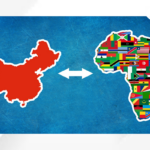This is an action-research report that comprises case studies and legal analysis of the enactment, operationalization, and impact of the United Nations’ International Covenant on Civil & Political Rights Act No. 56 of 2007 of Sri Lanka. Action-research combines the analysis and systematic addressing of a specific problem in society and ecosystem.
The ICCPR Act of Sri Lanka is intended as the International Covenant’s enabling enactment passed by the Parliament of Sri Lanka in order to fulfill the State’s obligations undertaken by the country after its ratification of the UN Covenant in 1980, rendering the Covenant enforceable within the country. The GoSL had failed to implement an enabling framework for decades. The ICCPR Act of 2007 was introduced as a response to the Sinharasa Judgment of 15th September, 2006, in the case of SC/SP(LA) 182/99 by the Supreme Court of Sri Lanka. The Sinharasa judgment prompted international pressure for Sri Lanka to clarify the State’s position on its commitment towards the ICCPR. The Supreme Court advised the Government to enact implementing legislation and frameworks in order that the ICCPR could be enforced.
Faulty Application: Subsequent practice of enforcing the ICCPR Act, however, has created the impression that the ICCPR Act itself has failed to adequately capture the genuine essence of the ICCPR.
The ICCPR adopted by the UN provides a progressive and comprehensive framework for civil and political rights in a country. When Chapter III on ‘Fundamental Rights’ of the Sri Lankan Constitution is compared with the ICCPR, there is a noticeable gap in the scope of rights enshrined in the Constitution. The ICCPR Act of 2007 fails to fill that gap.
Constitutional lacuna: The Sri Lankan Constitution appears incomplete and structurally disjointed when compared with the global standards, the primary objective of the UN Covenants being the preserving, and enhancing of human rights. The absence of a well-defined conceptual foundation within the Constitution, aimed at optimizing the realization of human rights for Sri Lankan citizens, presents challenges in coherently interpreting and applying the Bill of rights. Thereby it has become an additional complicating barrier to the protection and promotion of fundamental rights in Sri Lanka.
Continuous Misapplication of Act: An examination of implementation of the ICCPR Act in Sri Lanka brings up instances of its sustained misuse due to the lack of safeguards for the normative rights within it. The misapplication of the ICCPR by Sri Lankan authorities not only casts doubt on the State’s commitment to upholding human rights but also undermines the core principles embedded in the ICCPR itself. The ICCPR’s essence lies in safeguarding the rights and liberties of individuals, particularly guaranteeing the full exercise of civil and political rights belonging to the people. Regrettably, the contentious enforcement of the Act has cultivated an atmosphere characterized by apprehension and repression. The faulty application of the Act has shown that rights, such as rights of free expression, assembly, and of association, can be severely impeded through the enforcement of the Act.
Misuse of Incitement provisions: The most frequent illogical implementation of the ICCPR Act is the use of Section 3 of the Act dealing with prohibition of incitement to violence and war and, advocacy of hatred that results in discrimination, hostility, or violence. The provisions of Section 3 are very similar to the principles elucidated in Article 20 of the Covenant. Article 20 is introduced as a qualification of Article 19 of the ICCPR where it functions to counter hate speech. However, in international human rights law, it is imperative to interpret Article 20 in conjunction with Article 19.
It is universally accepted that when a state party acts on Article 20, it has to take into account Article 19. This entails refraining from enacting legal measures that exclusively shield any one belief, religion, or any institution from fair critique or criticism. Through the faulty enforcement of Section 3 of the ICCPR Act, the State has deviated from its international obligation. There has been a continued misuse of powers derived from the ICCPR Act.
HRCSL Guideline: Recognizing this recurrent issue, the Human Rights Commission of Sri Lanka introduced a guideline based on the Rabat Plan of Action created by the UN Office of the High Commissioner for Human Rights (OHCHR) to determine the types of advocacies that qualify as incitement within the purview of Article 20. This test comprises six essential elements:- context, speaker, intent, content and form, extent of the advocacy and, imminent harm. This HRCSL guideline offers clarity on the appropriate utilization of the Act within the ICCPR’s overarching principles.
Politically selective application of Act: In spite of the guidelines of the Human Rights Commission, arrests have persisted under the lens of the ICCPR Act’s misapplication. The utilization of the ICCPR Act has displayed a discernible pattern of selectivity, often driven by political, ethnic and religious considerations.
The arrest of parliamentarian and senior politician Tissa Attanayake in 2015 marked the beginning of the Act’s apparent illogical enforcement. Despite alternative legal provisions being available, the authorities invoked provisions of the ICCPR Act with the dubious intent of detaining Attanayake without the option of bail. This kind of practice shows the current tendencies behind the use of ICCPR Act by the authorities: to advance particular political objectives rather than to curtail hate speech.
This selective political application of the Act to press charges against citizens who express their opinions in various forms has become a very frequent practice. If the Act is allowed to be manipulated in this manner, particularly in the misuse of Section 3, there may become entrenched a general encroachment of the right of free expression. Paradoxically, although the Article 20 of the ICCPR is introduced to safeguard rights of disempowered groups in society, in Sri Lanka, there is the probability of transforming that same legal provision into a suppressive instrument against citizens.
Act as instrument of social dominance: This diverse use of the Act indicates an undesirable reality: it is harnessed to uphold the status quo and consolidate the dominance of the powerful. Rather than serving as a mechanism to protect individual rights and promote inclusivity, the Act veers towards advancing specific partisan agendas.
Recent positive application of Act: However, a recent judgment by Judge Aditya Patabendi in the Colombo High Court in relation to the bail application sought by stand-up comedian Natasha Edirisooriya has reverted the application of the domestic ICCPR law to a more appropriate direction. This judgement balances the whole complex of international and domestic legal frameworks, including the Act’s original purpose, its alignment with the right to freedom of speech, international guidelines like the 2020 UN General Assembly action plan on hate speech and the Rabat Action Plan, as well as provisions in the Penal Code and law enforcement powers. This landmark judgment not only brings the ICCPR Act in line with the right to freedom of speech but also emphasizes the convergence of domestic and international norms in addressing hate speech issues.
Lack of binding precedence by judiciary: It is crucial to emphasize that this High Court bail order solely carries the weight of a singular decision rather than establishing a binding precedent (stare decisis). It is essential to underscore that this High Court ruling, though instructive, may not necessarily chart a judicially positive course for forthcoming legal proceedings.
Recommendations: In conclusion, there are both short term and long term approaches to establish a stable mechanism for safeguarding civil and political rights in Sri Lanka and preventing the future misuse of the ICCPR Act.
In the short term, fostering awareness among law enforcement personnel and, exploring alternative legal avenues are vital steps toward rectifying the current situation. The utilization of the Natasha Edirisooriya case as a legal precedent is a valuable resource.
In the long term, a comprehensive amendment process for the ICCPR Act of 2007 is imperative to bridge its existing gaps and enhance its effectiveness. The incorporation of specific provisions, inspired by international guidelines, will highlight the State’s commitment to proportionate responses to hate speech while fostering a progressive and equitable legal framework.
Additionally, the inclusion of fundamental rights within Sri Lanka’s Constitution reaffirms the nation’s dedication to safeguarding human rights without succumbing to hierarchical classifications. The holistic approach followed in this study aims to establish a balanced and enduring solution while ensuring that civil and political rights in Sri Lanka are not only protected but also promoted in accordance with international standards and principles.
(This research embodies a collaborative effort among the One-Text Initiative, Capital Law Chamber, and the South-South Research Initiative.)
Read the complete research article here –
https://drive.google.com/file/d/16xjQKBggMTPsmq_uGQjCzIIyjKjyeOfj/view?usp=drive_link




